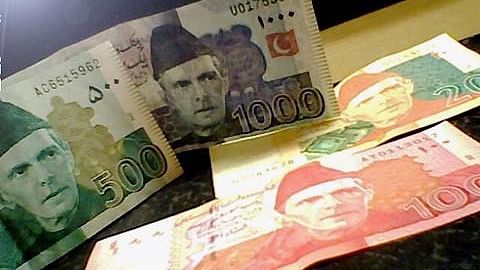Why are the traders, merchants up in arms?
Pakistan’s traders and wholesale merchants went on a nationwide strike Saturday protesting the government’s new austerity measures and a rise in taxes. The Pakistani government was forced to adopt these harsh economic measures in response to the $6 billion bailout package by the International Monetary Fund (IMF).
Who went on the strike?
The All Pakistan Traders Association (APTA) issued the call for a nationwide strike Saturday. The response was mixed — small and mid-level traders in Karachi, Islamabad, and Lahore remained shut but the main chambers of commerce and industry did not support the strike and remained open.
The effects of the strike seem more pronounced in specific cities and markets.
For instance, according to the President of the All Karachi Traders Alliance, “80 per cent” of all the markets dealing with bulk products in Karachi remained closed. Thus, bringing major economic activity to a stand still.
What seems to have really irked the trading community is a rule government rule that mandates customers to provide an identity proof while buying goods in excess of 50,000 rupees.
These strikes demonstrate the growing pressure on the Prime Minister Imran Khan-led government to put the country back on a positive economic trajectory.
Moreover, they highlight the hurdles he might have to overcome in order to implement the harsh austerity measures demanded by the IMF.
“This is probably the most challenging time for the government since it was elected last year. The pressure is mounting very rapidly. Right now, there seems to be very little breathing space,” president of a Pakistani private bank told the Financial Times.
State of the economy
The Pakistani economy has been in the midst of a crippling balance of payments crisis, which has left the country with dreadful economic fundamentals. Pakistan currently has a meagre $8 billion of foreign exchange reserves. Over the past year, its currency has lost 50 per cent of its value. And the economy faces rising fiscal and current account deficit.
These poor economic fundamentals have weakened the economic sentiment and led to an economic slowdown.
Other than these immediate issues, the economy faces a host of structural problems such as low tax collections and inefficient public enterprises.
A Faustian bargain
The country has a very low tax base — whereby, only 1 per cent of the population pays direct taxes. And Khan’s government has agreed to increase this revenue by 30 per cent over the next year.
This ambitious goal of increasing tax revenue creates a sticky situation.
The government is expected to raise taxes and cut spending in a year when the economy is undergoing a profound slowdown. Analysts fear that this might make the economic situation worse.
Also read: IMF finds very little right with Pakistani economy, prescribes very ambitious remedies




Nobody is against these laws except Nawaz Sharif Party which can be seen in viral vedios forcing shopkeepers to close markets.
Even though we are not from Pakistan but support the right steps taken by IMF.